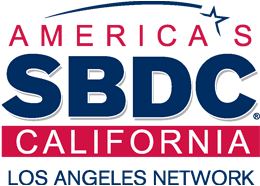As busy entrepreneurs trying to grow our businesses, no matter the state of the economy, we all need help at one time or another. But we don’t usually have the budget to hire a business consultant or coach. Is it possible to get advice, guidance and mentoring without spending a fortune? Yes, it is. The Small Business Administration (SBA) and its resource partners are here to provide help (and mentoring) to those of us who need it, says Marie C. Johns, Deputy Administrator of the SBA. I spoke to Johns to find out more.
First, let’s talk about the importance of small business to the nation. I’ve heard you speak at several events in the past year, and you seem to be adamant that without the contributions of small businesses, our economy would be in even worse shape.
Small businesses cannot be more important to the nation. President Obama has been very clear that he believes small businesses are the foundation of the economy. Small business owners are the job creators — 67 percent of new private sector jobs over the last 20 years were created by small businesses. And 50 percent of people in the workforce today are employed by a small business. assist you with preparation of a plan and access to research information.” 
We’re here at Loyola Marymount University in Los Angeles for the Urban Economic Forum, which is a series of events the SBA is putting on all across the country. Can you tell me more about these events?
The Urban Economic Forum is a multi-city series [taking place in New York City; Birmingham, Alabama; Los Angeles; Columbus, Ohio; Detroit; Chicago; Kansas City; Las Vegas; and Phoenix] designed to help urban business owners create an economy built to last. The purpose is to create a bridge connecting the SBA and local communities, and to raise awareness of the SBA among the people in these communities. Through the Forums, we’re connecting entrepreneurs to local resources, and connecting entrepreneurs to one another. We want to create stronger, deeper relationships across the board. Mentoring is an important part of that. It’s exciting to see young people coming to events like this and being so focused on learning. We’re helping create the next generation of entrepreneurs, and we’re tapping into the energy these young people have. It’s heartening to see young people doing such incredible things. Theirs is a generation of digital kids; they’re comfortable with the [technology] infrastructure, and at ease in digital platforms.
You just talked about mentoring. How important do you think is it to find a mentor and maintain that relationship?
The importance of mentoring cannot be measured. When starting a business, most [entrepreneurs] think about “What should I do to get money?” Don’t think about the money first. Your first thought should be “Where can I find a good mentor?” The answer, and an important first step, is to start with the SBA and our resource partners—the Small Business Development Centers, SCORE and the Women’s Business Centers. Mentoring is not just about teaching. It’s about showing [entrepreneurs] the tools that will boost their business efforts and teaching them how crucial it is to look at the big picture first, before they go granular.
The Forum events are geared toward helping minority entrepreneurs. You spoke today about how important minority and urban business owners are as we emerge from the recession, so I know that’s an important issue to you.
Small businesses are leading the way out of the recession, and minority-owned businesses are among the fastest-growing businesses in the country. But we [at the SBA] noticed that though a recovery was underway, it was uneven. We realized we needed to focus on underserved markets like urban communities, rural communities, veterans and minority-owned businesses, which include the African American community, the Hispanic community, woman-owned small businesses and young entrepreneurs.
In addition to mentoring, what do these business owners need to help them succeed? I was at an event last year where you were speaking, and you mentioned the “three C’s.” Can you explain the “three C’s?”
The “three C’s” are vital to a small business owner’s success. They are access to capital, helping businesses learn more about federal government contracting, and access to the counseling and technical assistance that, as we talked about earlier, businesses need in order to be successful.
Rieva Lesonsky is founder and President of GrowBiz Media, a media company that helps entrepreneurs start and grow their businesses. Before launching her business, she was Editorial Director of Entrepreneur Magazine. Follow Rieva at Twitter.com/Rieva and visit her blog, SmallBizDaily.com, to get the scoop on business trends and sign up for free TrendCast reports.



